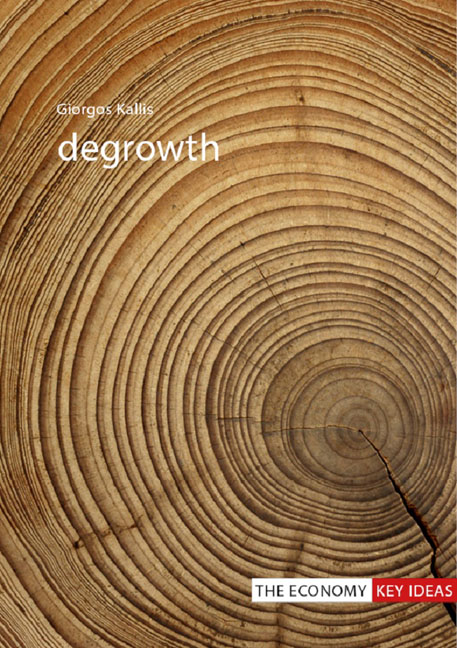2 - The economics of degrowth
Published online by Cambridge University Press: 09 August 2023
Summary
What is an economy and what does it do? This chapter explains how many of us who write about degrowth understand the economy. Our view differs fundamentally from how mainstream economists see the economy: namely, as a circular flow of money, goods and services between firms and households. The interdisciplinary picture I provide here combines insights from economic anthropology, ecological and feminist economics, Marxian and institutional political economy.
First, I will argue that the economy is not something “out there”, an independent system with its own laws of motion. It is a social and political construct: an invention of people in particular societies to represent and organize part of their experiences. This construction is constantly changing and can be contested – it is not carved in stone. But it is embedded in institutions that enact it and materialize it: institutions that are hard to change.
Second, whatever the term “economy” means, this something is material. It involves the transformation of raw materials into artefacts and services. Production is entropic: a portion of the energy used in production is always lost irreversibly as heat.
Third, the engine of the economy is work: work by humans and non-humans. Machines increase the total amount of product that results from a given amount of human work by minimizing losses, or, more often, by complementing human work with the work of nature. But machines do not do work themselves.
Fourth, the end of an economic process is expenditure. Expenditure can be productive, increasing production down the line; or it can be unproductive, pure and final expenditure beyond necessity or use. Societies construct their meaning and purpose around unproductive expenditure.
Fifth, different societies organize production, expenditure and who takes or does what differently. Class relations are the basis of exploitation: they are imprinted in the institutions of a society, and they are a constant source of conflict.
Sixth, work and expenditure are meant to satisfy the values that a society holds dear. Market value is one among many forms of value. Under capitalism, market value encroaches and colonizes other social values.
- Type
- Chapter
- Information
- Degrowth , pp. 15 - 60Publisher: Agenda PublishingPrint publication year: 2018



